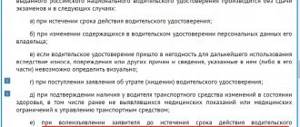Who it
Insurance covers financial protection for various aspects of life.
Motorists buy an MTPL policy, and the mortgage borrower must have real estate insurance. Sometimes the services of companies are required by law, without fail; in some situations, citizens of their own free will sign up for additional protection against unforeseen troubles. According to generally accepted definitions, an insurer is a company that, for a fee, undertakes to pay the amount of compensation upon the occurrence of an insured event. The policyholder is a person who has used the services of such a company, or a group of people who have purchased an insurance product. In simple words, one party orders services, and the second performs them.
The contract is signed solely on the initiative of the policyholder who intends to obtain financial protection. Often the initiator is the employer, who organizes an additional insurance package for employees.
It is important to correctly determine the beneficiary, since in the case of a loan, the lending bank plays this role until the debt is fully repaid.
Even if compulsory insurance is chosen, the client insures himself by choosing a company at his own discretion.
A person becomes an insured as soon as a contract is concluded with the company, and remains so throughout the entire period of validity of the document. For a certain fee, the policyholder receives the right to benefit from compensation if circumstances specified in the contract as an insured event arise (damage to health, property, the occurrence of certain life events).
Rights and obligations
After signing an agreement with an insurance company, an individual or legal entity becomes the policyholder. He has the following rights typical for any insurance contracts:
- Be informed about insurance products, the chosen company and its services, as well as changes in insurance conditions;
- terminate the contractual relationship with the insurance company at any time during the service, as well as receive a partial or full refund of the funds paid as a contribution for the insurer’s services;
- change insurance company at any time;
- receive payments stipulated by the contract subject to compliance with the conditions and provision of evidence and confirmation of the occurrence of the insured event;
- file a lawsuit against an insurance company that wrongfully refused to pay.
In this case, the policyholder is obliged to comply with the following conditions:
- Pay the insurance premium under the contract on time and in full;
- comply with the conditions for reporting an insured event;
- provide, at the request of the insurance company, additional documents confirming the occurrence of an insured event;
- Do not lie or misrepresent facts, personal information or other official information in documents.
It turns out that by paying a premium to the insurance company and observing the terms of the contract that was concluded with it, the policyholder receives the rights to payments for incidents that arise within the framework of the selected insurance package, and, accordingly, gains confidence in security.
Who is the policyholder
Policyholder – a person or group of people who receives an insurance product. This is the party who initiates the signing of an insurance contract because he wants to protect himself, his property or his trip. The policyholder voluntarily or compulsorily (if the state obliges him) purchases an insurance product and pays a premium to the insurance company. In return, he receives insurance payments when the events described in the contract occur and can count on protection of life, health or property.
Rights and obligations
After signing an agreement with an insurance company, an individual or legal entity becomes the policyholder. He has the following rights typical for any insurance contracts:
- Be informed about insurance products, the chosen company and its services, as well as changes in insurance conditions;
- terminate the contractual relationship with the insurance company at any time during the service, as well as receive a partial or full refund of the funds paid as a contribution for the insurer’s services;
- change insurance company at any time;
- receive payments stipulated by the contract subject to compliance with the conditions and provision of evidence and confirmation of the occurrence of the insured event;
- file a lawsuit against an insurance company that wrongfully refused to pay.
In this case, the policyholder is obliged to comply with the following conditions:
- Pay the insurance premium under the contract on time and in full;
- comply with the conditions for reporting an insured event;
- provide, at the request of the insurance company, additional documents confirming the occurrence of an insured event;
- Do not lie or misrepresent facts, personal information or other official information in documents.
It turns out that by paying a premium to the insurance company and observing the terms of the contract that was concluded with it, the policyholder receives the rights to payments for incidents that arise within the framework of the selected insurance package, and, accordingly, gains confidence in security.
Rights and obligations
The Insurer interacts with the Policyholder on the basis of a contract. Each of them has rights and obligations, which are prescribed in it. Let's talk about what the Insurer can and should do.
Rights
Before accepting property or human life and health for insurance, the Insurer must assess the degree of risk in order to charge an adequate fee for it. From here follows the first right - to demand any documents that confirm this degree. To assess the risk, the Insurer has the right to inspect the property. And in the case of life insurance, require the client to undergo a medical examination in order to assess his state of health, and, accordingly, the degree of risk for himself. After signing the contract:
- Receive payment for insurance;
- When an insured event occurs, request documents confirming that the event occurred and that it has signs of an insured event;
- Refuse to pay insurance compensation if false information is found in the insurance application. The same applies to untimely notification of an increase in the degree of risk. These provisions are specified in all insurance rules;
- Investigate the circumstances of the occurrence of an insured event if there are reasonable suspicions that the Insured has committed fraud;
- Unilaterally terminate the contract if the Policyholder does not pay premiums (in case of installment payment).
Voluntary types of insurance are not public. This means that the Insurer can refuse insurance if, based on the underwriting (risk assessment), it considers it inappropriate. Either the risk is too high or there is reason to believe insurance fraud is occurring.
Responsibilities
The first duty is to provide the Policyholder with reliable and comprehensive information about the type of insurance that interests him.
The second begins after the insurance contract comes into effect. This is the main responsibility of the Insurer - to pay insurance compensation (or security in personal insurance) upon the occurrence of an insured event. Other responsibilities follow from the main one:
- Send an independent expert to inspect and evaluate the property in case of damage or loss;
- Draw up an insurance act within the period specified by the rules (or law);
- Compensate the Insured for losses incurred during the salvage of property;
- Maintain insurance secrecy.
An example of a public contract is compulsory motor liability insurance. Any Insurer who has a license for it is obliged to conclude an insurance agreement with the client.
Who is an insurer
An insurer is usually a company that provides insurance services to the public. The insurer must be a legal entity and have all licenses and permits to conduct such activities. Also, for insurance under compulsory motor liability insurance and some other types of services, the insurer must have connections with RSA.
On the part of the insurer, the potential policyholder receives information (including advertising) about possible services and areas in which the insurer offers services. Different companies can be either universal insurers or focus only on a few specific types of insurance.
Typically, the range of insurance services of a large company includes:
- Voluntary and compulsory car insurance in the Russian Federation and for trips abroad - CASCO, OSAGO, green card;
- packages to minimize the risk to health and life of those who are going to travel abroad - for some categories of visas such policies are required at the request of consulates or embassies;
- Compulsory medical insurance and voluntary medical insurance – medical policies;
- property insurance.
Rights and obligations
The insurer also has certain rights under the contract concluded with the policyholder:
Terminate the contract unilaterally if the other party violates the terms under which it was signed - does not pay the premium on time, provides incorrect information about itself and about the object of insurance (for example, about a car); independently order examinations after reporting cases, study the circumstances of the case; make decisions on payments and their amount, taking into account additional information about the circumstances of the incident; receive truthful information about the insurance object and the insured; receive remuneration for your activities.
In this case, the insurance company is obliged to the policyholder:
- Pay the amount of compensation for losses after considering the circumstances of the event;
- do not transfer clients’ personal information to third parties;
- engage independent experts to determine the damage caused to the policyholder and the amount of possible payment;
- insure the client using the product he has chosen;
- offer potential clients truthful information about the conditions, types and costs of insurance services.
Thus, by offering insurance to the population, the company undertakes to fulfill certain obligations specified in the contract, but also has the right to demand that the client comply with its conditions.
Can the policyholder and the insured person not be the same?
The coincidence of the policyholder and the insured person is not always noted. For example, if an insured event occurs under a life insurance contract, the beneficiary may be another person, since the policyholder is physically unable to receive payment. In this case, the insured person is the policyholder and by his decision appoints the beneficiary fixed in the agreement.
Another clear example is a mother insuring her child under the VHI system. In this case, the woman acts as the policyholder, and the baby is the insured person. Although the beneficiary and the insured in this case are the same, since the mother will receive a payment to pay for the medical expenses of the child if the latter has not reached the age of majority.
In case of a collective insurance agreement, if in order to obtain a loan from a bank, the client joins such an agreement.
In this case, three parties agree:
- bank as insurer;
- the insurance company is the insurer;
- a client who applies to a bank for a loan is an insured person.
The beneficiary in this agreement is the bank, since it is to this financial organization that the insurer will pay the insurance if the client does not pay off the loan obligations.
Normative base
Insurance in Russia is regulated by several legislative acts, the main one of which is the Law of the Russian Federation of November 27, 1992 No. 4015-1 “On the organization of insurance business in the Russian Federation.”
Additional information about who the policyholder is is indicated in:
- Article 927 of the Civil Code of the Russian Federation (Part 2) dated January 26, 1996 No. 14-FZ;
- Article 1 of the Federal Law of April 25, 2002 No. 40-FZ on compulsory motor liability insurance, as well as other acts related to various sectors of the market.
According to the legislative acts of the Russian Federation, an insured in Russia is considered to be a person who has purchased a policy from an insurance organization. It doesn’t matter the method of purchase (online or in the office, from representatives), the type of service and the premium - anyone who initiates the conclusion of an insurance contract acts as an applicant.
Persons and organizations acting in the interests and on behalf of insurers
In addition to insurance companies, there are several entities operating on the market that provide insurance services to all interested clients. These entities operate on the basis of federal legislation in compliance with a number of mandatory rules. Moreover, the share of insurance contracts they issue is 25-30% of the number of all insurance agreements concluded in the Russian Federation during the calendar year.
Insurance agents
An insurance agent is an individual permanently residing on the territory of the Russian Federation, who is an individual entrepreneur, or acting on the basis of a civil contract with an insurer.
Agents can work in two directions:
- Representation of the interests of potential policyholders - selection of a suitable insurance program from the list of insurers with which the agent has a valid agreement.
- Representing the interests of insurers – searching for potential policyholders in order to increase the client base of the company/companies with which the agent has a partnership agreement.
Insurance agents are not recognized as persons acting without an agreement with the insurance company. In addition, the insurer itself or its full-time employee who is a member of the company on the basis of an employment agreement has no right to perform the duties of an agent. Also, persons who have a criminal record that has not been expunged or expunged, or who held a management position in an insurance company for 2 years before being declared bankrupt are not recognized as agents. And finally, the functions of an agent may not be performed by persons holding any position in subsidiaries or affiliates of the insurer.
The main responsibility of the agent is the selection and sale of services. In the vast majority of cases, the agent is paid as a percentage of the amount of each insurance agreement he concludes. The parties agree on the amount of remuneration when drawing up a civil agreement. After the client concludes an agreement with the company, the agent’s work ends.
All subsequent legal relations between the policyholder and the insurer are formed directly, without the participation of third parties. The agent does not and cannot bear any responsibility for the actions and decisions of the insurance company. One insurance agent can simultaneously cooperate with several insurers - no restrictions are set in this regard.
At the request of a potential policyholder, the insurance agent provides documentary evidence of the legitimacy of his authority. The insurance company, in turn, is obliged to maintain an internal register of all its insurance agents and provide clients with information about each of them upon request.
Insurance brokers
Another market participant is insurance brokers. In accordance with Art. 8 Federal Law No. 4015-1 they are persons permanently residing in the territory of the Russian Federation, as well as organizations acting in the interests of insurance companies and having the appropriate powers. In this case, individuals must have the status of an individual entrepreneur with valid OKVED 66.22. Organizations must have the status of a full-fledged legal entity operating autonomously.
Insurance brokers act in the interests of companies or policyholders, but on their own behalf. This is the difference with insurance agents, who only have the right to provide intermediary functions. In turn, insurance brokers are responsible for additional functions defined in the agreement with the insurer. Brokers are not authorized to act as an insurer or reinsurer, or as an insurance agent. In addition, brokers do not have the right to engage only in intermediary functions in processing compulsory types of insurance. Their main features:
- In the vast majority of cases, a broker is a company (legal entity) that has entered into an agreement with several insurers.
- Brokers have the authority to enter into insurance contracts on their own behalf, but in the interests of the insurer or policyholder.
- During the execution of the contract, the policyholder can contact the broker, without a direct relationship with the insurer.
Most often, insurance brokers operate in cities that do not have their own representative offices of insurance companies. This is extremely convenient for potential policyholders: you can go to the office of an insurance broker and choose the most suitable insurance program. In this case, the insurer can only offer its own insurance products, and the broker can offer offers and programs from a number of companies with which it has existing partnerships.
Among other responsibilities of brokers, a key place is occupied by informing clients that they are not insurers, but only perform intermediary functions. The same information is posted on the official website of the organization. Brokers must provide policyholders with comprehensive information for each insurance company so that the client can verify the legality and legitimacy of the authority of the intermediary organization.
Rights and obligations of each party
Since the subjects of health insurance are mainly legal entities, the fulfillment of their obligations is controlled by social insurance commissioners. Their responsibilities include monitoring the fulfillment of financial responsibilities, compliance with financial transactions, and the provision of quality medical services.
Policyholders
One of the key subjects of compulsory health insurance is the employer of the insured person. This category also includes individual entrepreneurs and individuals who hire employees for temporary or seasonal work under employment contracts. This also includes employees of the notary structure and the legal profession.
The main requirement for policyholders is timely and full payment of insurance premiums for their employees.
The functional responsibilities of this category are reduced to the following actions:
- Conclusion of contracts for services of territorial compulsory health insurance funds;
- Making contributions in accordance with the established schedule and in full;
- Provide measures to minimize the impact of harmful factors on the health of its employees.
All categories of policyholders undertake to provide the insurer with all information about the health of their employees, as well as their working conditions. At the same time, employers are obliged to implement recommendations aimed at improving working conditions in the interests of the health of hired and full-time employees.
Another category of insurers is being formed for certain groups of citizens who do not have permanent employment or who enjoy government social benefits and financial support at the federal level. For such people, the insured may be federal social security services, federal or municipal executive authorities, or local government structures.
Insured persons
In this group of participants, the subjects of health insurance are individuals in whose favor insurance premiums are made from policyholders. In essence, the insured persons are the direct beneficiaries in the event of an insured event.
The insured persons, as follows from the description of the powers and responsibilities of the policyholders, can be both employed citizens and those who, for various reasons, are unable to work - mothers on maternity leave, disabled people, persons registered with the employment service on a temporary basis.
Insurers
This most expanded structure of participants in the medical insurance system ensures the movement of financial resources, their calculation and distribution. Also, the powers of these subjects of compulsory health insurance include the drafting of insurance contracts, the function of monitoring the fulfillment of requirements on the part of the insured, as well as verifying the authenticity of the fact of the insured event.
The main actor of this structure is the Federal Compulsory Medical Insurance Fund.
Its extensive network operates in various regions - territorial social insurance bodies for medical insurance risks.
Medical insurance institutions act as the connecting link between the fund, its divisions, policyholders and insured entities. They are competent in drawing up and signing health insurance contracts. They are also entrusted with drawing up tariffs for payments in specific insurance cases, determining the amount of insurance premiums, as well as the right to accredit medical institutions.
This group of insurers must be accredited at the federal level, and the degree of its competence must be confirmed by the presence of a license from the Ministry of Finance. As part of servicing insured persons, these subjects of compulsory medical insurance record funds, distribute them, ensure investment and safety.
Medical institutions
Along with financial structures, medical institutions are also participants in compulsory health insurance. A mandatory requirement for these participants in the insurance system is their presence in the federal register of medical organizations. This right is also accompanied by appropriate accreditation, a license and confirmed competence of medical personnel.
Private medical entrepreneurs running their own medical practice can also act as this entity.
As you can see, all of the listed entities that are participants in compulsory health insurance could not act separately, and their relations are aimed at achieving a common goal - ensuring social protection of insured persons, as well as maintaining financial interests within the framework of federal social security programs.
Who can perform
In Art. Art. 5 Federal Law No. 4015-1 dated November 27, 1992 “On the organization of insurance business in the Russian Federation” states that not only an individual, but also an organization can act as a client of a company.
Individuals
According to the law of November 27, 1992 No. 4015-1, the policyholder can be any legally capable person. According to Art. 60 of the Constitution of the Russian Federation, full legal capacity of Russians occurs at the age of 18 years. During the period from 14 to 18 years of age, citizens are considered partially capable: parents or legal representatives (guardians) bear full responsibility for them.
People with limited legal capacity cannot initiate contracts with the insurance company. But their representatives have the right to arrange the service on their own behalf, indicating them as insured persons.
Basic requirements of insurers:
- The client has an identification document. Preferably a Russian passport, but not only. Foreign citizens can also insure themselves, loved ones and real estate in Russia. They must present a document by which they can be identified.
- Age from 18 years. In other cases - with the consent of the representative or parent.
- Additional documents, depending on the insurance industry. Driver's license, technical passport and diagnostic card - according to OSAGO. Loan agreement, appraiser's conclusion, certificates from the developer - when drawing up a collateral policy.
REFERENCE! A complete list of mandatory requirements for individuals is available on the financial institution’s website. It is recommended to clarify the information before visiting the office, online or in the company itself.
Legal entities
Legal entities are policyholders in the following cases:
- Drawing up collective agreements, for example, for employees.
- Reinsurance. When a change of insurer occurs, the previous company changes from a seller of services to the status of a buyer-client.
- Purchasing policies for companies. For example, in real estate insurance for legal entities.
Who is the “policyholder” when applying for compulsory motor liability insurance?
Many car owners who want to conclude an agreement under MTPL believe that the “insured” and the “owner” are necessarily the same person. And they thoughtlessly register as the “insurer” the grandmother-owner of the vehicle, who lives in the village and has nothing to do with her property other than the formal right of ownership “planted” by relatives.
Meanwhile, the MTPL rules (part 1, clause 4) give the following definition: “the policyholder is a person who has entered into a compulsory insurance agreement with the insurer.” Simply put, the policyholder is the one who pays money for MTPL insurance and subsequently makes the necessary changes to the policy: changes the period of use, adds new drivers, asks for a duplicate, etc. And it is not at all required that the policyholder be the owner of the vehicle, have his notarized power of attorney or was included in the policy. One person can be the policyholder, another can be the owner, and third parties will have the right to drive the insured car. The responsibilities of the policyholder are simple.
- Provide reliable information, valid documents or their photocopies necessary for the correct calculation of the insurance premium and the conclusion of the MTPL agreement.
- Make the necessary changes to the policy in a timely manner, if any occur during the year.
Under the CASCO agreement
With CASCO insurance, the situation is approximately the same as with registration of a motor vehicle license. The policyholder can be any person or legal entity. The difference is this. Whoever takes out the MTPL policy, the beneficiary, by default, becomes the owner of the damaged car. Therefore, the concept of “beneficiary” is absent in MTPL insurance. In a motor insurance policy, in addition to the concepts of “insured” and “owner”, there is a clause in the agreement called “beneficiary”. Therefore, when insuring comprehensive insurance, several options arise for the terms of concluding a contract:
- The policyholder and the owner are the same person. The right to receive payments belongs only to him.
- The policyholder and the owner are the same person, but the driver included in the policy is indicated as the beneficiary in the contract, who must have a notarized general power of attorney from the owner, stipulating his right to receive insurance compensation.
- Policyholder is a person who owns and disposes of a vehicle under a general power of attorney with the right to receive insurance compensation. In this case, he will either be the beneficiary himself (automatically), or he can indicate the owner of the vehicle as the beneficiary.
- The policyholder and beneficiary are the owner of the vehicle. But at the same time, the CASCO agreement is concluded and signed by a person who has a notarized power of attorney from the owner with the right to conclude an insurance agreement on behalf and in the interests of the owner.
Insured under a CASCO agreement
With comprehensive insurance, the situation is approximately the same as with car insurance from a third party. The insured can be any individual or legal entity. The difference is this. No matter who issues the liability policy, the default beneficiary is the owner of the damaged vehicle. Therefore, in third party insurance there is no concept of “beneficiary”. In an auto insurance policy, in addition to the terms “insured” and “owner,” there is a provision in the contract called “beneficiary.” Therefore, when insuring comprehensive insurance, there are several options for the terms of the contract:
- The policyholder and the owner are the same person. The right to receive benefits belongs only to him.
- The policyholder and the owner are the same person, but the driver is indicated as the beneficiary in the contract, who must have a notarized general power of attorney from the owner, reserving the right to receive insurance compensation.
- Policyholder is a person who owns and operates a vehicle under a general power of attorney with the right to receive insurance compensation. In this case, he/she will be the beneficiary (automatically) or can designate the owner of the vehicle as the beneficiary.
- The owner of the vehicle is the insured person and beneficiary. But at the same time, the CASCO agreement is concluded and signed by a person who has a notarized power of attorney from the owner with the right to enter into an insurance agreement on behalf and in the interests of the owner.
Who receives compensation in case of an accident?
After an accident occurs, the person for whom the MTPL insurance is issued will not be able to make decisions, since he is not the owner of the car. Namely these actions: write a statement about the accident that occurred and demand payment of compensation for damage. This is only possible if he has a formalized power of attorney from the owner of the car. In other situations, only the owner of the vehicle receives the payment.
The car owner will be able to receive payment for car insurance in cash at the insurer's cash desk or by bank transfer to the bank's personal account. To transfer money, the owner of the car needs to transfer bank information to the insurance company. But in most cases, you will need to receive a referral for car repair.
Policyholder, owner, beneficiary – one person or not
In accordance with the current procedure, the insured may not be the owner of the insurance object. It is enough to consider the example of compulsory motor liability insurance, when any person who has documents for a car can contact the insurance company. A power of attorney and other additional documents are not required - only a standard package for the car and documents of the person who contacted the insurer.
Beneficiary is the person who receives compensation in the event of an insured event. It is the owner of the insured object, unless otherwise provided by law. Consequently, the beneficiary can be either the policyholder himself or the person who legally owns the insured property.
Insurer
The best insurance companies in Moscow
The insurer is the one who determines the amount of damage and makes payments.
Insurers are companies engaged in insurance activities. They are represented by organizations (SC) and societies and operate on the basis of an appropriate license and do not have the right to engage in other business activities.
Their functions include:
- insurance risk assessment;
- determining the extent of damage;
- formation of insurance reserves;
- making mandatory payments;
- carrying out other actions in accordance with the agreement.
On an ongoing basis, insurance companies undergo a so-called actuarial assessment. The actuarial report must be submitted annually to the supervisory authorities along with other reporting. The list of documents required for reporting is established by the supervisory authority itself. The task of the insurance company is to ensure the safety of all documentation.
- information about managers, shareholders;
- full name, contact details, operating hours;
- types of contracts provided;
- financial statements;
- insurance rates;
- company rating;
- information about membership in associations, etc.
Who is the insured person in the Pension Fund
The list of insured persons in the compulsory pension insurance system is determined by the provisions of Art. 7 of Federal Law No. 167, adopted in December 2001 and regulating pension insurance issues in the Russian Federation.
The opportunity to become an insured and beneficiary of the OPS applies to the following persons who are Russian citizens living in Russia or abroad, as well as foreigners employed in the territory of the Russian state:
- have officially entered into an employment agreement with the employer;
- businessmen and other persons who provide themselves with work independently;
- those employed abroad, but paying contributions to the Pension Fund;
- engaged in the traditional craft of individual peoples of the North, Siberia and other regions;
- clergy.
The main condition for belonging to the compulsory insurance system is the payment of insurance contributions to the Pension Fund.
Who are the subjects
In accordance with the legislation in force on the territory of the Russian Federation, the subjects of compulsory insurance include:
- Persons participating in insurance (Russian citizens who are in employment relationships with commercial and government organizations, or individual entrepreneurs).
- Employers (insurers).
- Insurers.
The insurer can be either a commercial or government organization or an individual entrepreneur who uses hired labor in his business activities.
Insurers may not be state-owned companies that timely fulfill their financial obligations to insured Russian citizens in the event of an insured event.
The legal status of social insurance subjects is determined by the Federal legislation of the Russian Federation dated July 16, 199 No. 165-FZ.
The status of an insured person can be obtained by:
- Russian citizens (having Russian citizenship);
- residents of the Russian Federation who do not have citizenship;
- citizens of foreign countries temporarily residing on Russian territory.
Insured persons can be both employees and persons who independently provide themselves with income received from the provision of services or performance of work.
They are obliged, in accordance with Federal Russian legislation, to regularly pay insurance premiums to the budget established by the relevant regulations.
Substitution in the contract
The need to replace the policyholder or beneficiary, in accordance with the concluded agreement, may be due to the following circumstances:
- his death, as a result of which the rights of this person pass to the heir or to the one specified in the agreement;
- loss of legal capacity or its limitation - in this case, the functions of the policyholder are transferred to his guardian or trustee.
Replacement of the insured person and beneficiary is possible until the insured event occurs, and is issued on the basis of a written notification to the insurer sent by the policyholder. The insured person or beneficiary can be replaced by the policyholder, with amendments to the insurance contract concluded by the parties by an additional agreement.
The insured person in most cases is the beneficiary under the terms of the policy. But it is necessary to take into account that this situation is not always observed and the beneficiary may be different, which is important to understand when concluding an insurance contract.










